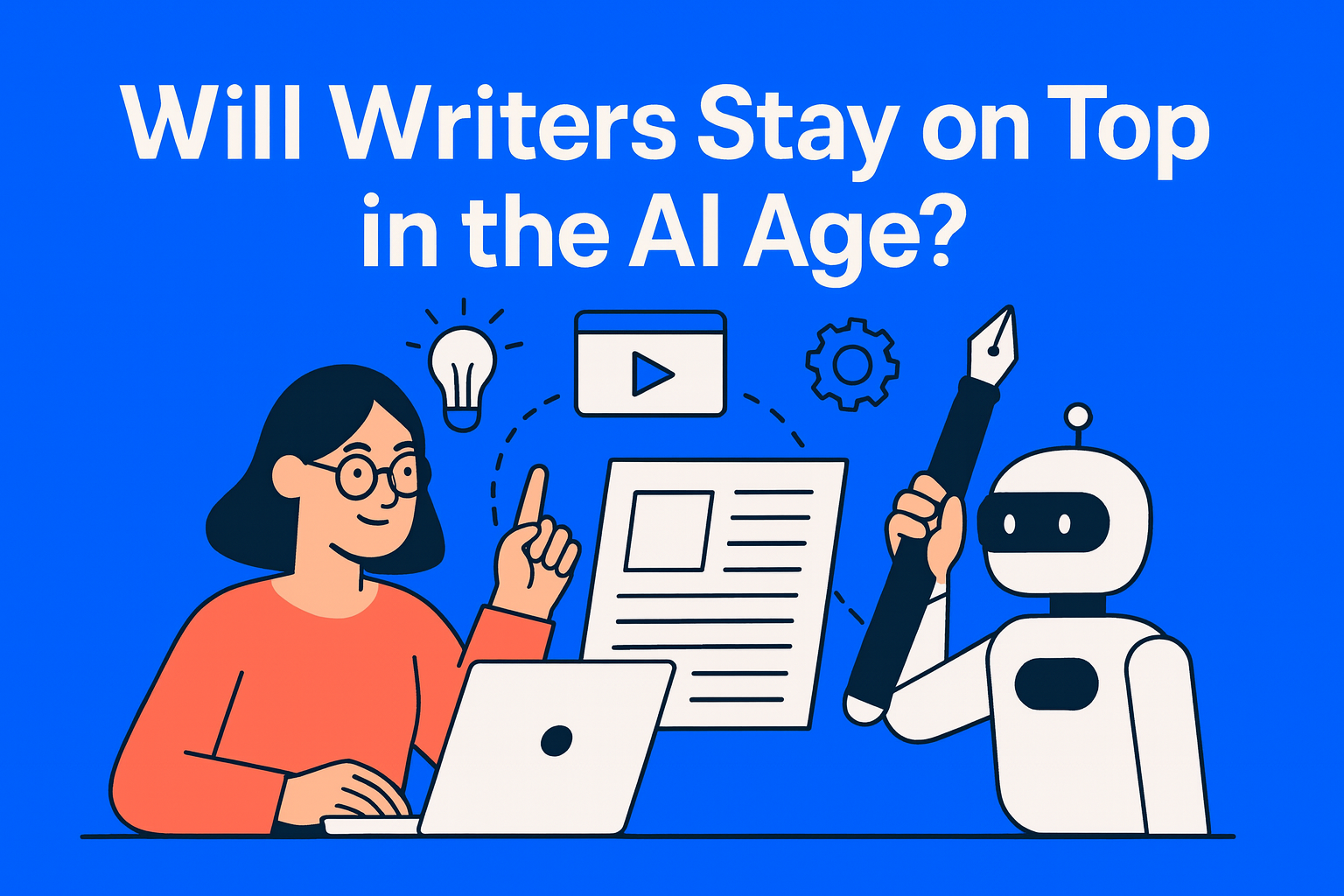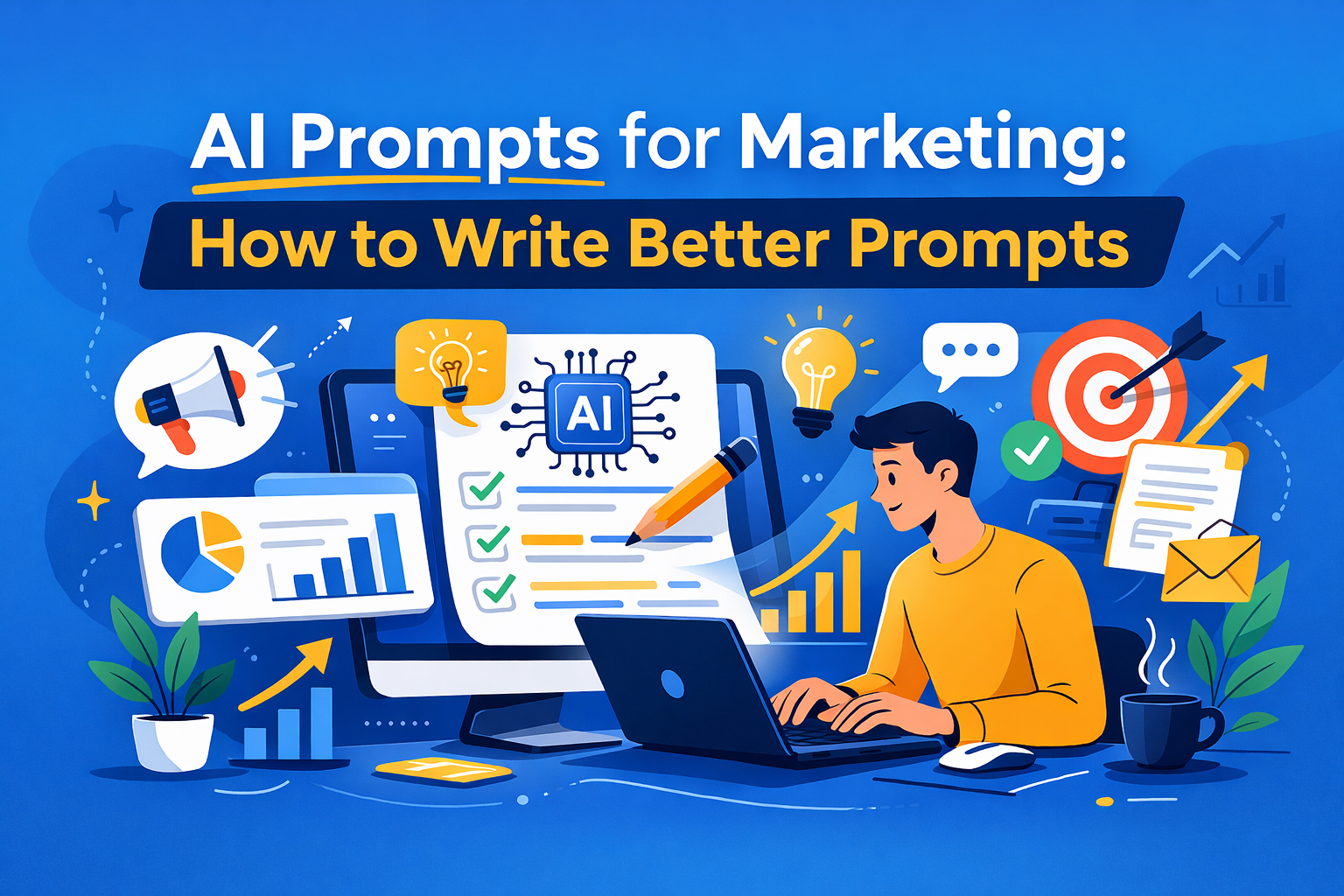Will Writers Become the Most Important Role in the AI-Driven Content World ?
In the AI era, writers aren’t just authors, they’re strategists guiding AI from idea to polished content. Discover why creative direction, clear prompts, and human insight make writers the most valuable link in AI-driven content creation.

In the past, writing a text meant spending hours in front of a blank page or screen, searching for the right words and shaping every sentence from scratch. Today, just a few seconds and a couple of precise words are enough for artificial intelligence to produce a complete text. This shift in speed and process raises an important question: if AI now handles the act of writing, are writers still equally important? Or perhaps their role is even more crucial because everything still starts from their idea, clear direction, and ability to guide the content creation process. A writer now defines not only the topic, but also the structure, tone, key messages, and desired outcome, ensuring the AI gets clear and complete guidelines so the final text is accurate, coherent, and aligned with the audience’s needs.
Key Takeaways
- Writers are evolving into strategists - defining ideas, tone, structure, and purpose before AI begins drafting.
- Prompt creation is a core skill - precise, detailed instructions lead to more accurate and on-brand AI output.
- New essential skills include creative concepting, information structuring, tone setting, and fact-checking for ethics and accuracy.
- AI is the “actor,” writers are the “directors” - guiding the process from idea to polished final content.
- Future demand will favor adaptable writers who can combine creativity, strategy, and AI fluency to lead content production.
AI and Writing Today
Tools like ChatGPT, Claude, and Jasper can now generate articles, scripts, and even novels in a very short time. As a result, traditional manual writing is becoming less common. In many teams, writers often don’t choose the topic or strategy - those decisions come from editors, marketing teams, or content managers. Sometimes, the writer is simply given a ready-made prompt or brief and asked to review and polish what AI has generated.
Still, their role remains essential. A good writer knows what makes content clear, useful, and engaging. Even if they’re not starting from their own idea, they play a key role in shaping tone, checking logic and flow, identifying inconsistencies, and making sure the message gets through to the audience effectively. AI can process a lot of information, but it’s the writer who makes sure everything makes sense and is clearly written for the reader.
Writers as “Prompt Architects”
In the AI era, you’ll often hear the term prompt engineering. Simply put, it’s the skill of giving AI clear, detailed, and understandable instructions so the output is as high‑quality and useful as possible. In practice, this could mean the writer sets the tone, style, structure, key points, and examples in advance to guide the AI in the right direction. The more precise the instructions, the more likely the content will be accurate, relevant, and aligned with its goal. That’s why everything starts with the writer - they think about the audience, message, and form, and the AI develops and shapes that idea.
Think of AI as a top‑tier actor. They can play any role, but if the director (the writer) doesn’t clearly explain the script and tone, the performance will be weak.
New Skills Writers Will Need
To stay relevant, writers will have to master skills that go beyond traditional writing:
- Creative thinking - AI can copy style or format, but only humans can come up with completely new ideas and give them a personal touch. This means creating original concepts and approaches that serve as a foundation for AI.
- Structuring information - writers need to organize facts and ideas so the reader can easily follow the story. This means a clear introduction, well‑placed arguments, and a logical conclusion.
- Defining tone and style - AI can adjust tone, but the writer decides whether the content will sound formal, casual, motivational, or educational, depending on the audience.
- Ethics and accuracy - AI sometimes makes mistakes or provides inaccurate data. Writers verify facts, remove bias, and ensure the content is ethically sound.
These skills separate someone who just uses AI to generate text from a true creative leader who knows how to use AI to its fullest potential.
Why Writers Could Become the Most Important Link
AI can write almost anything you ask for, but it doesn’t know what exactly needs to be written until a human explains it clearly. This is where writers step in as “brains behind the scenes” - combining creativity, strategic thinking, and knowledge of AI tools to turn an idea into content with clear purpose, value, and impact. This includes defining the text’s goal, identifying the audience, setting tone and style guidelines, selecting relevant information, and overseeing the final output.
In the future, a smaller group of skilled, adaptable writers could have even greater influence and responsibility over how digital content is shaped. Just as a director guides actors and the entire film set, the writer will guide AI through every step of the process - from the idea and concept, through drafting, to the final version ready for the audience.
Challenges of the AI Era
Of course, it’s not all perfect. The writer’s role could be reduced to entering a few sentences or commands, which for many might feel uninteresting and lacking creative challenge. There’s also a risk that younger generations, used to AI, could lose the skill of traditional writing over time. And then there’s the question of authorship - is the real author the AI that wrote the text, or the person who gave the instructions and guided the process?
Conclusion
To answer the question in the title - will writers become the most important role in the AI era? - The answer is: Yes, but only for those who adapt. The future belongs to writers who understand how AI thinks, know how to guide it, and can turn their ideas into top‑quality content.
Writing is changing, but writers remain the heart of the story. Only now, instead of holding a pen or keyboard, they hold the compass that points the way in the AI world.






